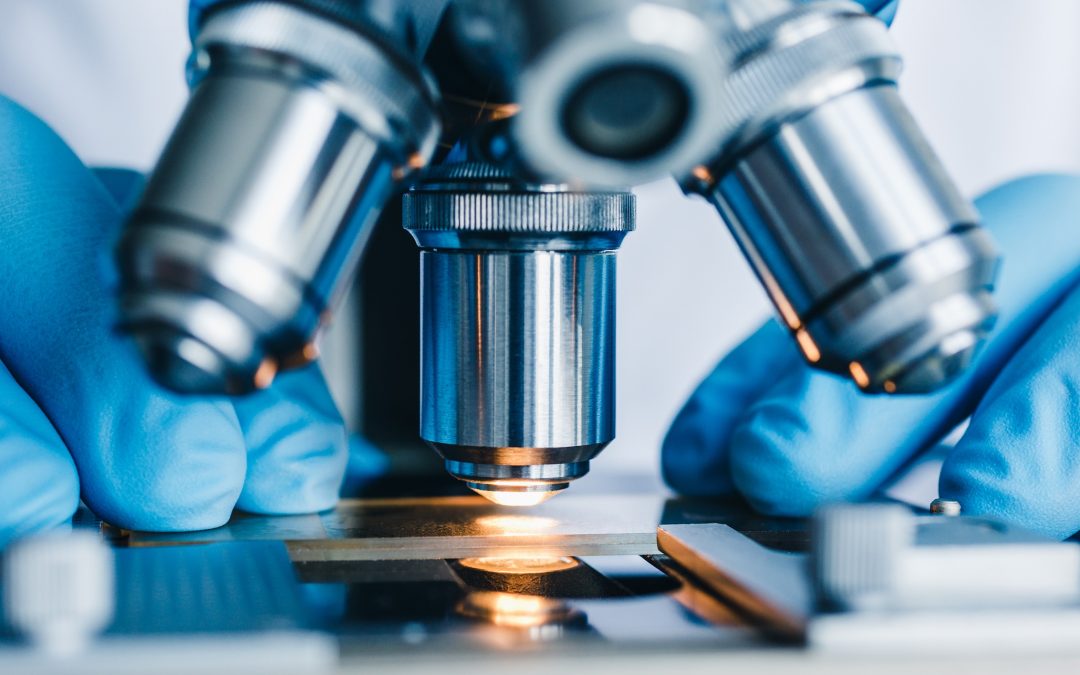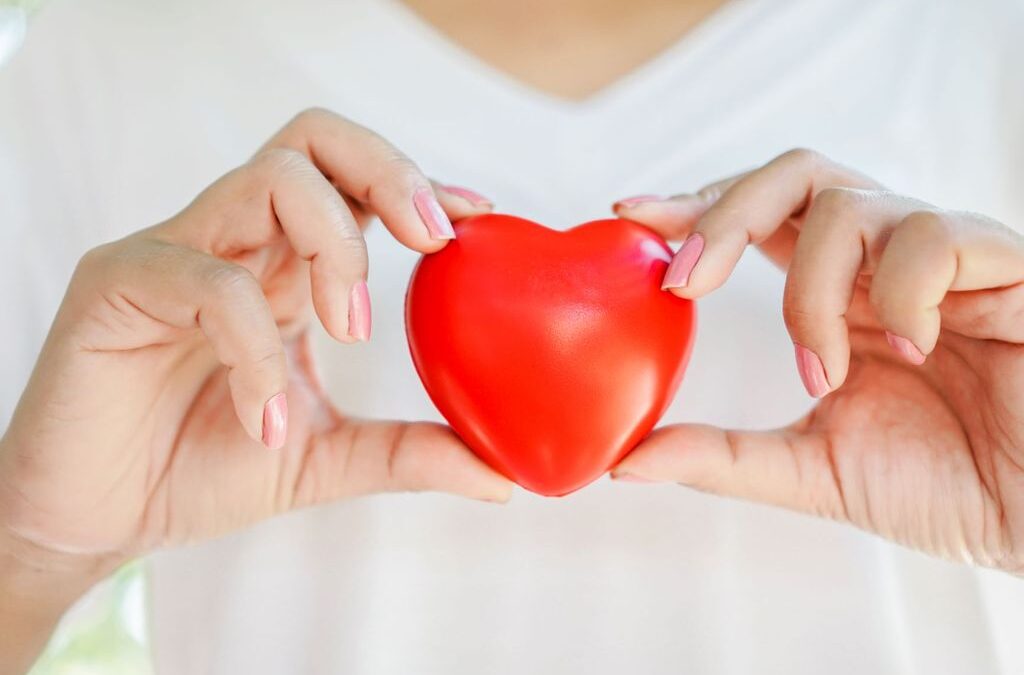AHCC and Cancer: What Are The Studies Showing?

Cancer is a devastating disease and the focus of constant research. AHCC, an immune system-enhancing supplement derived from healing mushrooms, is gaining increasing attention for its potential role in lessening the effects of chemotherapy and supporting people with various types of cancer.
In healthy people, AHCC may be able to modulate the immune system and improve the activity, number, and performance of crucial components of the immune system, such as NK cells and T cells.
As the focus of over 100 published studies and counting, scientists are looking into how AHCC can benefit people with specific conditions, including cancer. Read on to get a full breakdown of just a few of these promising studies.
AHCC AND CANCER: THE RESEARCH
AHCC is gaining special attention for the role it may be able to play in helping people with cancer. Here is a look at the results of eight different
human clinical trials that have been performed to test the usefulness of AHCC supplementation in different cancer-related scenarios.
Can AHCC be used in the treatment of head and neck cancer patients?
The most concrete results from this study, which was published in the International Journal of Clinical Medicine, are that none of the patients had any side effects as a result of taking AHCC, and almost all of the people in the study experienced a greater appetite than what they had before taking AHCC.
Significant groups of study participants observed a noticeable improvement in their overall strength and health, and/or less severe chemotherapy side effects, especially in regards to gastrointestinal issues (such as constipation or vomiting).
Can AHCC improve the prognosis of hepatocellular carcinoma (HCC) patients following surgical treatment?
This study from the Journal of Hepatology compared a group of people that were taking AHCC with a control group, in order to most accurately measure the effectiveness of AHCC for these particular circumstances. For reference, HCC is the most common form of liver cancer that typically requires surgery.
After the study participants had surgery and were either placed in the AHCC group or the control group, the study found that the AHCC group went longer periods of time without cancer returning to their bodies and had a better survival rate.
Does AHCC affect castration-resistant prostate cancer (CRPC)?
CRPC is a type of prostate cancer that does not respond to hormone therapy, the typical prostate cancer treatment. This 2009 study from Anti-Cancer Drugs was performed by an individual with CRPC who wanted to see how AHCC supplementation could benefit his condition.
After only a month of taking AHCC, his prostate-specific antigen (PSA) levels, which are typically very high in a person with CRPC, declined significantly and remained low for about six months.
Does AHCC affect patients with advanced breast cancer?
This study, published in the International Journal of Integrative Oncology, showed that patients with stage IV breast cancer, who also used AHCC, had a better prognosis than what is generally expected for people with advanced-stage breast cancer.
Based on incompatible data, however, no significant conclusions or comparisons could be made about patients with stage I-III breast cancer.
Does AHCC affect patients with advanced liver cancer?
The Asian Pacific Journal of Allergy and Immunology published this study, which compares advanced liver cancer patients who are using AHCC with a group of advanced liver cancer patients who are not.
Following at least three months of AHCC supplementation, the AHCC group observed better quality of life (both mental and physical), longer survival rates, and more normalcy to their days. They also had a greater percentage of lymphocytes (B and T cells) in the blood than the control group.
Does AHCC affect patients with early-stage prostate cancer?
This study from the Japanese Journal of Clinical Oncology specifically looked at the prostate-specific antigen doubling time (PSADT) before and after patients with early-stage prostate cancer began using AHCC. For reference, the longer the PSADT, the more stable the cancer is perceived to be.
The percentage of patients with a long PSADT (10 years or more) grew to 55% with the addition of AHCC supplementation. Additionally, 3 (out of 31) participants who originally had a PSADT of less than two years saw their PSADT increase positively.
Does AHCC affect the survival rate of patients with gastric cancer or colon cancer?
Comparing the survival rate of gastric and colon cancer patients taking AHCC with the average survival rate of these cancers in Japan, this study published by
the Natural Medicine Journal found that the survival rate was higher for the AHCC group, for both gastric cancer and colon cancer.
Does AHCC have immunomodulatory and anticancer effects in cancer patients?
According to the International Journal of Immunotherapy, certain qualities of AHCC may allow it to repress the spread of tumors in cancer patients. Of the participants using AHCC, 66% of people with prostate cancer experienced complete remission, as did 66% of people with ovarian cancer, 50% of people with multiple myeloma, and 33% of people with breast cancer.
This study also found that AHCC worked quickly to improve NK cell activity and stabilize levels relating to the specific type of cancer (for example, PSA levels in people with prostate cancer).
All of these studies show positive results in terms of AHCC supplementation and cancer, and more human clinical studies are continuing to further strengthen the results of these and other studies. You can view each of these studies in their complete form by clicking here and downloading the PDF versions.
AHCC AND CHEMOTHERAPY: THE RESEARCH
AHCC has also been identified as a supplement that may be able to reduce or relieve some of the negative side effects of chemotherapy. The following are all
human clinical studies that have been performed to test how/if AHCC may be useful to people undergoing chemotherapy.
Does AHCC alleviate the adverse events in the adjuvant chemotherapy of breast cancer patients?
People who are undergoing chemotherapy are typically at a higher risk for infection. This is because chemotherapy causes a significant decline in neutrophils, which are a crucial component of the immune system’s white blood cells.
Presented at the 20th International Congress on Nutrition and Integrative Medicine,
this study found that AHCC supplementation helped restore stable neutrophil levels and allowed for the chemotherapy process to last a shorter period of time. In addition to this, AHCC helped lessen the severity/frequency of chemotherapy-related side effects.
Does AHCC have a hematoimmunologic effect on cancer patients?
This study from Biotherapy found that participants taking AHCC experienced no change in their levels of hemoglobin, white blood cells, hematocrit, and thrombocyte, levels that normally would decline drastically with chemotherapy.
The study also found that, compared with the control group, the AHCC group had more NK cell activity. NK cells help destroy abnormal cells, and are therefore critical to anyone who has cancer.
Does AHCC have an immunomodulating effect on cancer patients?
In May 1994, this study was presented at the 2nd Meeting of the Society for Natural Immunity. The results show just how effective AHCC is in increasing NK cell activity.
Compared to the control, the AHCC group saw up to three times as many NK cells, and this increase occurred over only a couple of weeks. This activity continued to increase for the first six months of supplementation.
What effect does AHCC have on the reduction of adverse effects in advanced cancer patients on chemotherapy with weakened immune systems experiencing HHV-6 herpes virus infection and liver and blood toxicity?
As previously mentioned, chemotherapy weakens the immune system and leaves the body more prone to infection. This study from Nutrition and Cancer specifically looked at people with cancer who are undergoing chemotherapy while also experiencing HHV-6.
While chemotherapy would normally increase the presence of HHV-6, AHCC helped greatly decrease HHV-6 levels in participants. It also helped lessen blood and liver toxicity.
What is the difference in chemotherapy treatment adverse effects and incidence in those receiving AHCC and those who didn’t?
Lastly, this study from The Journal of Alternative and Complementary Medicine compared an AHCC group with a control group to see how they responded to chemotherapy.
The AHCC group had fewer events relating to neutrophils or other granulocytes (white blood cells) than the control group, given that AHCC is able to keep the levels of these cells stable even during chemotherapy.
For more information on AHCC and chemotherapy, read the full studies and more here.
IN SUMMARY
Results from human clinical trials performed around the world have shown that AHCC is effective in increasing the quality of life of cancer patients, elongating survival rates, and lessening some of the severe/debilitating side effects of chemotherapy.
As research continues, AHCC’s full potential in aiding people with cancer and/or people who are undergoing chemotherapy will be fully realized.
See a full overview here of the many benefits of AHCC and how over 1000 healthcare facilities worldwide use it to treat their patients.
Sources


